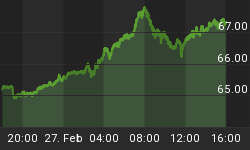There’s nothing like a global pandemic to bring other looming disasters such as climate change to the forefront--and that includes the fashion industry, which has just seen one of the most important developments on its path to economically feasible sustainability.
Allbirds--the now-cultish sustainable footwear maker--is going public, and it could set the stage for the snowballing of sustainable fashion startups.
Unlike older generations, Millennials and Gen-Zers are far more fashion conscious when it comes to the environmental impact of the clothes they wear, and they are willing to spend more on sustainably produced items.
The result of that awareness is that San Francisco-based Allbirds now has enough power behind it to go public in what is called a “sustainable” initial public offering--the very first of its kind.
“We hope to help pioneer a framework for companies to conduct what we are calling a sustainable public equity offering . . . Our vision is that Allbirds’ initial public offering will lay the groundwork that can be used by other companies for future SPOs,” the company said in IPO filing.
Allbirds footwear, particularly popular among tech workers, is produced using naturally derived materials. Furthermore, the company claims its supply chain has been carbon neutral since 2019.
Last September, Allbirds raised $100 million in a Series E funding round, valuing it at $1 billion.
The company’s earnings before tax grew from $1.3 million in 2019 to $15.4 million in 2020; but it has yet to be profitable, with net losses amounting to $40.4 million between 2019 and 2020.
But in this day and age, investor money is willing to pour into non-profitable companies with gusto, as long as they promise to be the thing of the future.
And when it comes to sustainability--a key area attracting big money right now--the fashion industry is ripe for lucrative change.
The fashion industry accounts for about 10% of global carbon emissions and nearly 20% of wastewater, according to data from the United Nations Environment Programme (UNEP.) The agency’s findings show that the fashion industry’s carbon footprint is larger than all international flights and maritime shipping combined.
“At this pace, the fashion industry’s greenhouse gas emissions will surge more than 50 % by 2030,” the UNEP report said.
All this doesn’t sit well with younger generations, who are looking for sustainability in every aspect of life, from investing to housing. Now more than ever, they are setting their sights on the fashion industry where they are inspiring new trends.
Morgan Stanley predicts that by 2034, Gen Z will be 80 million strong and represent the United States’ largest generation.
Also, a recent McKinsey study shows that younger generations are “willing to pay a premium for sustainable goods with a story that makes them feel guiltless about consumption”. (In the case of Allbirds, shoes go for ~$100-$190 a pair. It’s not cheap, but it’s not that exorbitant compared to other popular sneaker makers.)
Aside from sustainable clothing, the pandemic and growing environmental awareness have helped to boost other fashion industry segments, including businesses focused on second-hand and “swap” clothing.
According to a new report by ThredUp and GlobalData Retail, the secondhand apparel market is valued at about $28 billion today and is forecast to reach $64 billion within five years. In fact, the resale market grew 25 times faster than the overall retail market last year.
And it was no surprise that second-hand e-commerce company Poshmark gained major interest from investors. The company soared as much as 150% after going public in January. With 6.2 million active buyers and 31.7 million active users, the company made a profit of $20.9 million in 2020, after losing $34 million a year before.
If all the above-mentioned is not sustainable enough, then how about no clothing at all? Since the pandemic shuttered stores and closed down the catwalk, virtual clothing has become more popular.
















